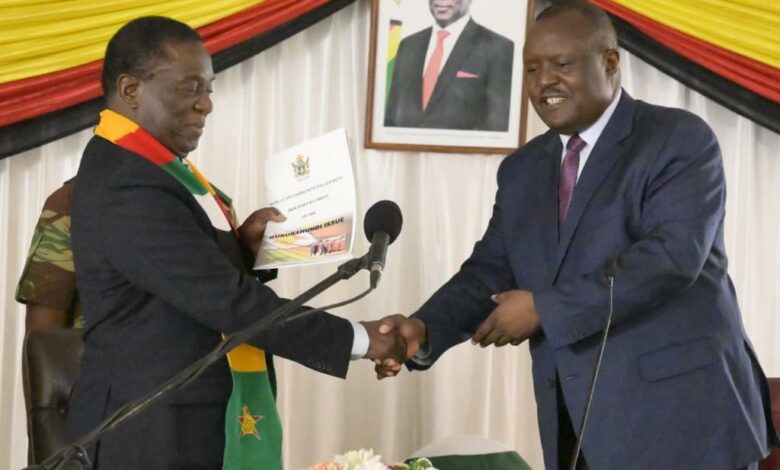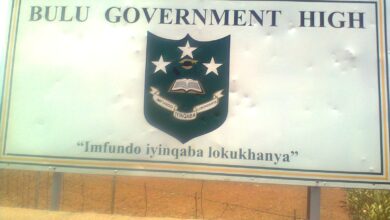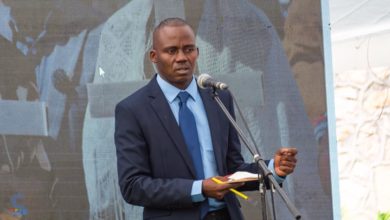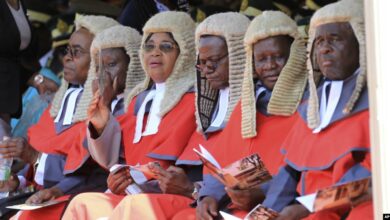Charumbira slams critics, says chiefs are qualified to solve Gukurahundi genocide

National Council of Chiefs president, Senator Fortune Charumbira, dismissed criticism of their role in solving the Gukurahundi genocide as he handed over a manual, on how chiefs will tackle the emotive issue, to President Emmerson Mnangagwa in Bulawayo on Monday.
The chiefs’ operating manual comes in two volumes: Volume One will outline how the chiefs arrived at this stage since their appointment in 2021, while Volume Two will guide how they will conduct engagement meetings and gather input from the affected communities.
According to Charumbira, Mnangagwa appropriately assigned the process of resolving Gukurahundi to traditional leaders because they were in control of communities.
“A critical component in resolving openly engaging Gukurahundi is to make sure the whole process recognises Gukurahundi took place in communities where people are. In your excellent wisdom as a cultured president, you saw it befitting that this process can only be led by traditional leaders – the chiefs of course supported by village headmen in the communities,” he said.
Charumbira said the fact that their assignment came from the president showed his trust in their capacity to solve the decades-old genocide.
“In our constitution, traditional leaders have always been responsible for dispute or conflict resolution,” he said.
“We are proceeding in terms of the constitution in terms of culture. Critics will say how do you resolve this Gukurahundi issue without involving the victims themselves and because it is a process some people don’t understand it was a process and that criticism is coming out of a lack of understanding,” he said, noting chiefs of Matabeleland North and South had prepared enough.
Charumbira emphasized the step-by-step manual created by chiefs would now be driven by communities.
“The manual was not developed by a consultant telling the chiefs how they should but we saw the appetite of a number of consultants who came saying, ‘we have done this before, can we design it.’ We said, ‘no, this is community-based. It’s for the chiefs and culture-specific, so cannot be designed by an outsider who is not part of the communities.’”
Charumbira stated two workshops were held for chiefs to establish their own preferred techniques.
“We started with the basics, like how are you going to communicate to people in your region that we need contributions from victims following this launch? How do you craft the message such that it does not spoil how we communicate?” he asked.
Chiefs, according to Charumbira, formed groups and presented outcomes that were considered, such as who should invite people to meetings.
“We discussed using chiefs’ messengers or aids but before inviting people, where do you hold these meetings -at ward level or chief’s palace? Chiefs discussed among themselves what the composition of the chiefs panel should be. This is not the everyday judicial panel, this is different,” he said.
“How will the panel look like? Elders must be part of the panel, respected church leaders, women, youth but they were not there during Gukurahundi but they need to appreciate that conflict is bad and understand how it can be resolved.”
Charumbira said chiefs advised they will need a counsellor for socio-psyche support in case some “collapsed” during emotional submissions.
“We are happy chiefs themselves wrote that manual,” he said.
“Despite sending out the word to come submit, some families may be reluctant and never come but the communities may know the pain suffered. How do you entice people to volunteer before a panel? All this was discussed by the two provinces and agreed to elements of these issues.”
Charumbira summarised the manual but stated resources were required.
“A secretariat and rapporteurs will record the submissions. It was agreed people be trained as communities have good high schools, they can do recordings after training. Chiefs will be capacitated in terms of laptops and iPads,” he said, noting the structure of reports had to be standardised.
One concern raised throughout the consultation was some individuals would be afraid to attend the sessions and Charumbira said they had set procedures in place to address this.
“You need introductions to know who is among us. If we don’t know you, we ask you to excuse yourself. We don’t want suspicions in our gatherings,” he said.
“There are people who even raise questions out of mischief to spoil proceedings. These meetings are for communities, you cannot move from other areas to another area. If you want to participate, do so within your community.”
Charumbira declared that he too will not conduct any meeting as he is not from the affected provinces.
“It is becoming clear this is a community-based process. There is no one from outside who is going to conduct these meetings,” he said but claimed some criticized the process as they were unaware of the entire trajectory.
Once complete, the reports will be handed over to President Mnangagwa.
“So do not predict the end before we get there. Please help us but the resolve is this is a process that is going to work and achieve results, it cannot fail,” Charumbira summed.






